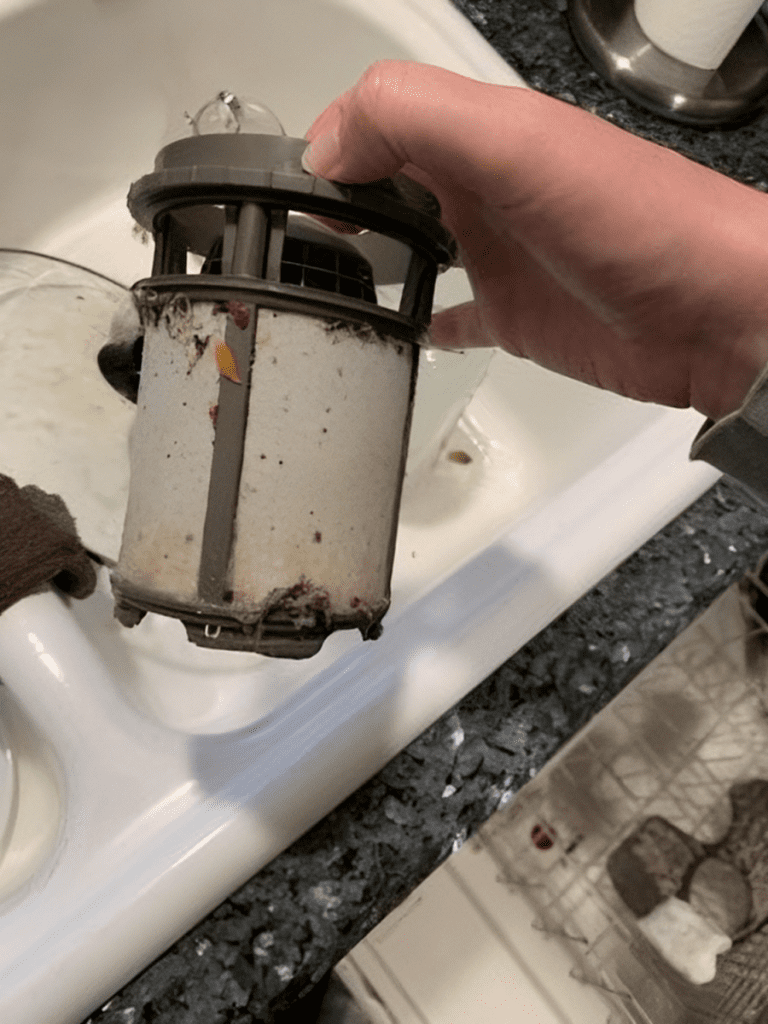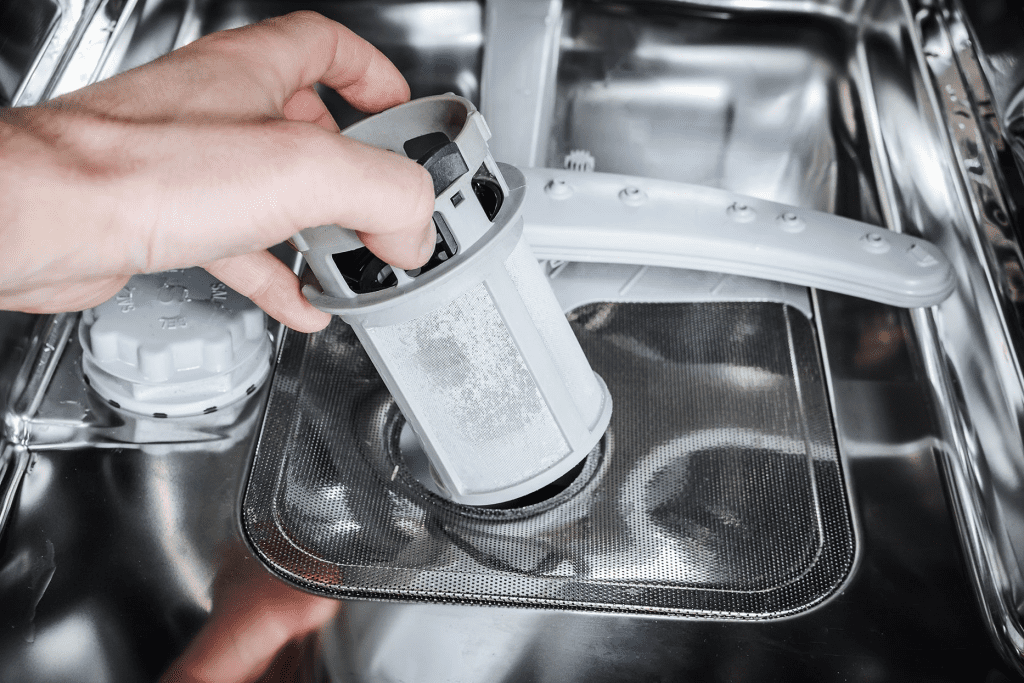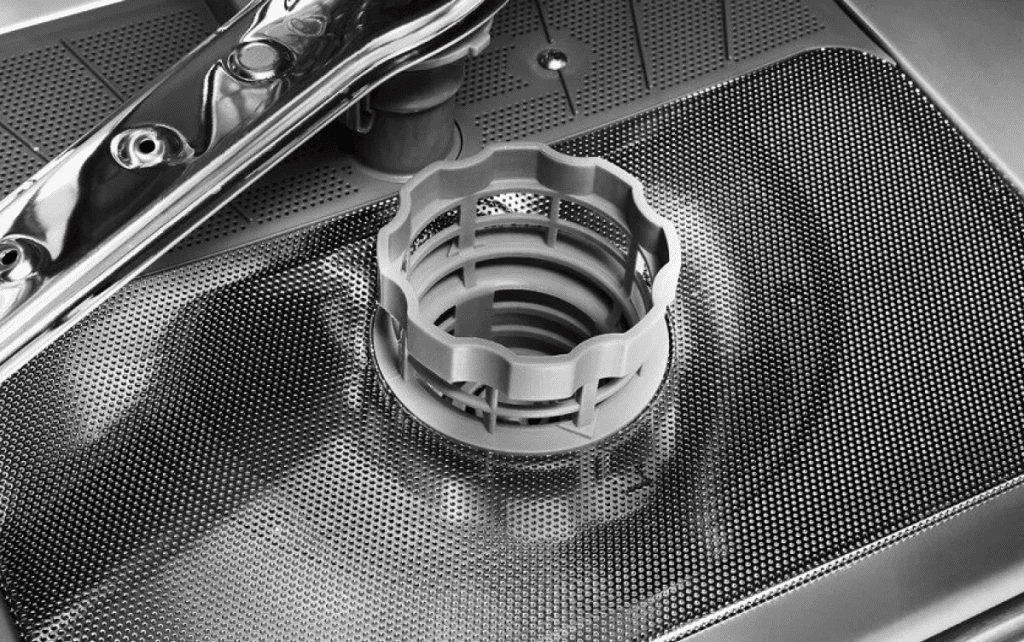Maintaining your dishwasher in optimal condition is essential for ensuring it continues to perform at its best. One of the most crucial yet often overlooked tasks is cleaning the dishwasher filter. A clean filter allows the dishwasher to efficiently remove food particles and debris from your dishes, keeping them spotless after each cycle. Failing to clean the filter regularly can result in unpleasant odors, subpar cleaning performance, and even damage to the appliance. Here’s everything you need to know about when and how to clean your dishwasher filter to keep your machine running like new.
When to Clean Your Dishwasher Filter

How often should you clean the dishwasher filter? The answer depends on your usage patterns and the types of dishes you typically wash. A good rule of thumb is to clean the filter once a month, but you may need to do it more frequently if:
- You use your dishwasher heavily or wash very dirty dishes regularly.
- You notice that your dishes aren’t coming out as clean as they should.
- There’s a lingering odor coming from the dishwasher.
Here are some clear signs that your dishwasher filter may need cleaning:
- Food particles are left on dishes after a cycle.
- Water drains slowly from the dishwasher.
- Unpleasant odors emanate from the machine.
- Visible debris or residue is found around the filter area.
By paying attention to these warning signs, you can catch filter problems early before they affect the performance of your dishwasher.
How to Clean Your Dishwasher Filter: A Step-by-Step Guide
Cleaning your dishwasher filter is a simple task that can be done in just a few minutes. Here’s how you can clean it efficiently:
1. Turn Off and Unload the Dishwasher
Before starting, make sure the dishwasher is turned off and empty. This gives you easy access to the filter without any obstructions. Plus, it prevents accidental water spills or other mishaps while working inside the machine.
2. Locate the Filter
Most dishwasher filters are located at the bottom of the appliance, typically underneath the lower spray arm. In many models, you may need to remove the lower rack to get to the filter area. Check your dishwasher’s manual if you’re unsure where the filter is located.
3. Remove the Filter

Dishwasher filters generally come in two parts: a cylindrical fine-mesh filter and a flat coarse-mesh filter. To remove the filter:
- Twist the cylindrical part counterclockwise to unlock it, and then lift it out.
- Next, remove the flat filter. This design helps trap both large and fine food particles, preventing them from recirculating and redepositing on your dishes.
4. Rinse the Filter Under Warm Water
Hold the filter under warm running water to rinse away food particles and debris. Use a soft brush or an old toothbrush to scrub off any stubborn residues. Avoid using harsh chemicals or abrasive materials, as these can damage the filter’s mesh.
5. Check the Filter Housing
While the filter is out, inspect the filter housing inside the dishwasher for any remaining debris or grime. Wipe the area clean with a damp cloth, ensuring there’s no leftover food or buildup that could hinder your dishwasher’s performance.
6. Reassemble and Replace the Filter
Once you’ve cleaned the filter thoroughly:
- Put the flat filter back in place first, followed by the cylindrical filter.
- Twist the cylindrical filter clockwise to secure it tightly. Ensuring that the filter is correctly locked in place is crucial for preventing any leaks or performance issues during future cycles.
7. Run a Test Cycle

To make sure everything is functioning properly after the cleaning, run a short test cycle with the dishwasher empty. This will flush out any remaining debris and ensure that the dishwasher is back to peak performance.
Final Tips for Maintaining a Clean Dishwasher Filter
Keeping your dishwasher filter clean should be a part of your regular maintenance routine. Not only will it help keep your dishes sparkling clean, but it will also prolong the life of your appliance by preventing unnecessary strain on the motor and pump. Here are some extra tips to keep in mind:
1. Regular Maintenance
Cleaning the filter once a month is ideal for most households, but if you notice any of the signs mentioned earlier, don’t hesitate to clean it more often. Regular maintenance ensures that your dishwasher runs efficiently and helps avoid costly repairs down the line.
2. Consult the Manual
Dishwashers come in many different models, and the filter design can vary. If you’re not sure about how to remove or clean the filter in your specific model, always consult your user manual for precise instructions. This can prevent any damage to the filter or the dishwasher during cleaning.
3. Inspect the Filter After Each Load
To minimize food particle buildup between cleanings, inspect the filter after each load for any large food particles. Quickly removing any visible debris can prevent clogs from forming and save you time during your monthly cleaning.
4. Don’t Forget the Surrounding Areas

While the filter does most of the work to trap food particles, it’s a good idea to wipe down other parts of your dishwasher occasionally, such as the door seals and spray arms. This helps prevent mold, mildew, and odors from building up inside the machine.
Why Cleaning Your Dishwasher Filter Matters
Keeping your dishwasher filter clean is not just about improving cleaning performance. Over time, a dirty filter can lead to multiple issues, including:
- Reduced cleaning efficiency: Food particles can get trapped in the filter and recirculate, causing your dishes to come out dirty even after a full cycle.
- Increased wear and tear: A clogged filter can force the dishwasher’s pump to work harder, leading to potential mechanical failure or expensive repairs.
- Unpleasant odors: Stagnant food particles in the filter can begin to rot, leading to bad smells that can affect the whole kitchen.
- Higher energy consumption: A dishwasher with a clogged filter will have to work harder to clean, potentially increasing your energy bills over time.
Conclusion: Keep Your Dishwasher Filter Clean for Optimal Performance
Cleaning your dishwasher filter regularly is a simple task that can significantly improve the performance and lifespan of your appliance. By knowing when and how to clean the filter, you’ll ensure that your dishwasher continues to provide spotless dishes and operates efficiently for years to come. Incorporating this easy task into your maintenance routine will not only save you from costly repairs but also keep your kitchen smelling fresh and your dishwasher running smoothly. So, take a few minutes each month to give your filter the attention it deserves—you’ll be glad you did!


